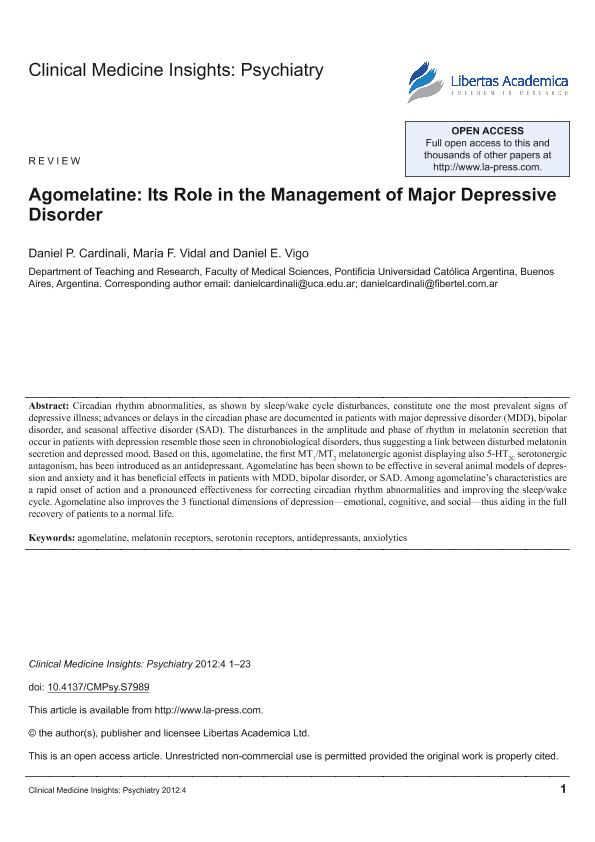Artículo
Agomelatine: Its Role in the Management of Major Depressive Disorder
Fecha de publicación:
11/2012
Editorial:
SAGE Publications
Revista:
Clinical Medicine Insights: Psychiatry
ISSN:
1179-5573
Idioma:
Inglés
Tipo de recurso:
Artículo publicado
Clasificación temática:
Resumen
Circadian rhythm abnormalities, as shown by sleep/wake cycle disturbances, constitute one the most prevalent signs of depressive illness; advances or delays in the circadian phase are documented in patients with major depressive disorder (MDD), bipolar disorder, and seasonal affective disorder (SAD). The disturbances in the amplitude and phase of rhythm in melatonin secretion that occur in patients with depression resemble those seen in chronobiological disorders, thus suggesting a link between disturbed melatonin secretion and depressed mood. Based on this, agomelatine, the first MT1 /MT2 melatonergic agonist displaying also 5-HT2C serotonergic antagonism, has been introduced as an antidepressant. Agomelatine has been shown to be effective in several animal models of depression and anxiety and it has beneficial effects in patients with MDD, bipolar disorder, or SAD. Among agomelatine’s characteristics are a rapid onset of action and a pronounced effectiveness for correcting circadian rhythm abnormalities and improving the sleep/wake cycle. Agomelatine also improves the 3 functional dimensions of depression—emotional, cognitive, and social—thus aiding in the full recovery of patients to a normal life.
Archivos asociados
Licencia
Identificadores
Colecciones
Articulos(SEDE CENTRAL)
Articulos de SEDE CENTRAL
Articulos de SEDE CENTRAL
Citación
Cardinali, Daniel Pedro; Vidal, Maria Florencia; Vigo, Daniel Eduardo; Agomelatine: Its Role in the Management of Major Depressive Disorder; SAGE Publications; Clinical Medicine Insights: Psychiatry; 4; 11-2012; 1-23
Compartir
Altmétricas




